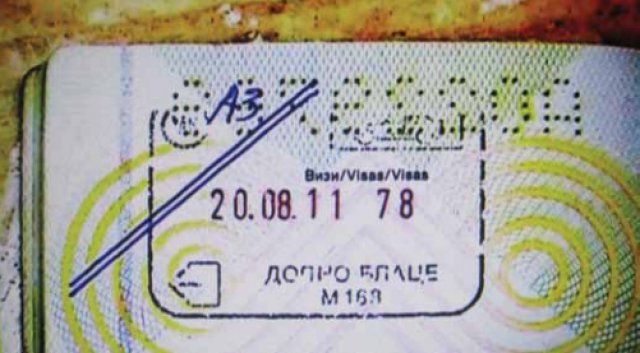Call for Participants: Workshop on Roma Migration - Western Balkans and the EU Visa Liberalisation Dialogue
02 October 2013
 To be held in Belgrade, Serbia, November 27th to 29th 2013.
To be held in Belgrade, Serbia, November 27th to 29th 2013.
On Migration Patterns of Roma from Western Balkans to EU Member States; National and International Policies and Approaches
The ERRC invites abstracts for participation in a workshop and publication of an article in a forthcoming issue of the Roma Rights Journal on the above theme.
Citizens of EU enlargement countries tend to migrate to the EU due to various reasons. These reasons may include simple economic calculations, professional development, or cultural experiences. There is, however, a significant population of migrants, who travel toward the West out of necessity as their prospects in their country of origin offer nothing more than poverty, social marginalisation, and racial discrimination.
Roma in this region often live in hostile and segregated housing conditions, their children are offered lower quality education, their health needs are blatantly neglected, labour market either offer unattractive menial low-paid jobs with no possibility of elevating themselves from the bottom of the social hierarchies, or simply nothing, and law enforcement bodies directly apply repressive and corrective measures when dealing with Roma. Under such conditions, leaving the country represents not only the most rational choice but may also be the only available survival strategy which is left.
In addition, Roma from Western Balkan countries are still affected by the repercussions of the wars in former Yugoslavia. Tens of thousands are still displaced within the region and cannot return to their place of origin. Despite this, Western European countries send refugees back, which often leads to a new displacement.
A primary consideration by all parties involved in responding to migration of people living under such conditions should be respect for human rights and dignity. However, what has been happening in the EU has a rather reverse trajectory. Both the countries of origin under the EU enlargement negotiations and the EU receiving countries apply specific measures to Roma. Roma are being stopped at the borders for pre-screening controls and denied exit, sometimes their passports are marked, and they are threatened by specific fines or denials of social benefits after return. On the other side, EU countries often response with repressive measures and return them by force.
Among the commitments that Western Balkan governments submitted to in the course of the accession process was an agreement to “facilitate the swift return of irregular migrants.”
The mutual inter-relatedness of the issues of the Roma migration towards the EU and the conditions of the EU visa liberalisation procedures for Western Balkan has been recognised on several occasions, e.g., at the EU Roma Platform or the EU Roma summits,. It is certainly a very sensitive issue as all sides – EU enlargement countries from Western Balkans, EU member states, and the European Commission (EC) - aspire to balance pros and cons of such migration patterns, specifically in relation to the EU Freedom of Movement Directive. In this regard, the EC Commission stated that this migration is a “’very worrying phenomenon’ [...] which could jeopardize the entire process of visa liberalisation in the Western Balkans.” Visa liberalisation thus represents an important instrument by which the EC can pressure the Western Balkan. Parties expect one another to introduce adequate measures to optimize and standardize Roma migration flows.
Roma Rights Journal: Workshop on migration – call for abstracts
The next issue of the Roma Rights Journal will focus on Roma migration from the Western Balkans to EU Member States and their (forced) return to Western Balkan countries. The contribution will focus on political, social, cultural and other elements of the Roma migration as well as the experience of migrants, officials in the countries of origin and host countries, EC officials, and migration experts.
Workshop
The principal contributions to the Roma Rights issue on migration will be based on the ERRC/ERPC workshop. It will be held on November 27-29, 2013 in Belgrade, Serbia, with ca. 10 selected participants drawn from Roma activists, academic experts on migration patterns, researchers, decision-makers, international and domestic experts from civil society and inter-governmental organisations taking part.
Workshop participants are expected to submit articles based on their workshop contributions to the Roma Rights Journal (Jan/Feb 2014). This issue will also inform the evidence base for the consequent ERPC advocacy rounds with EU institutions starting in March 2014.
Workshop objective: to map the approaches of individual actors – governments of the country of origin and the receiving country, migrants, migrants’ families, civil society, Roma activists, and EU bodies – to the migration of Roma from Western Balkans toward the EU.
Themes may include the complex issue of migration patterns and channels; the reaction of public authorities (national, regional, local), local residents, law enforcement authorities, and the EU bodies; the negotiations held between the countries of origin and the EU institutions (DG Home Affairs); and the EU Roma inclusion policies in light of this migration.
Call for abstracts: those interested in participating should submit a 500-word abstract no later than October 23 proposing a paper on the theme of migration and Roma migration patterns. Selected participants will be notified by October 30th.
Abstracts and proposals should be sent to marek.szilvasi@errc.org and kieran.oreilly@errc.org.
Invited participants will be expected to provide a draft discussion paper of approximately 2,000 words, which will be circulated in advance of the workshop (to invited participants only). The deadline for this submission is November 15, 2013. Travel and accommodation is covered.
Final drafts of articles for publication in the Roma Rights Journal are to be submitted by February 1st 2014.




